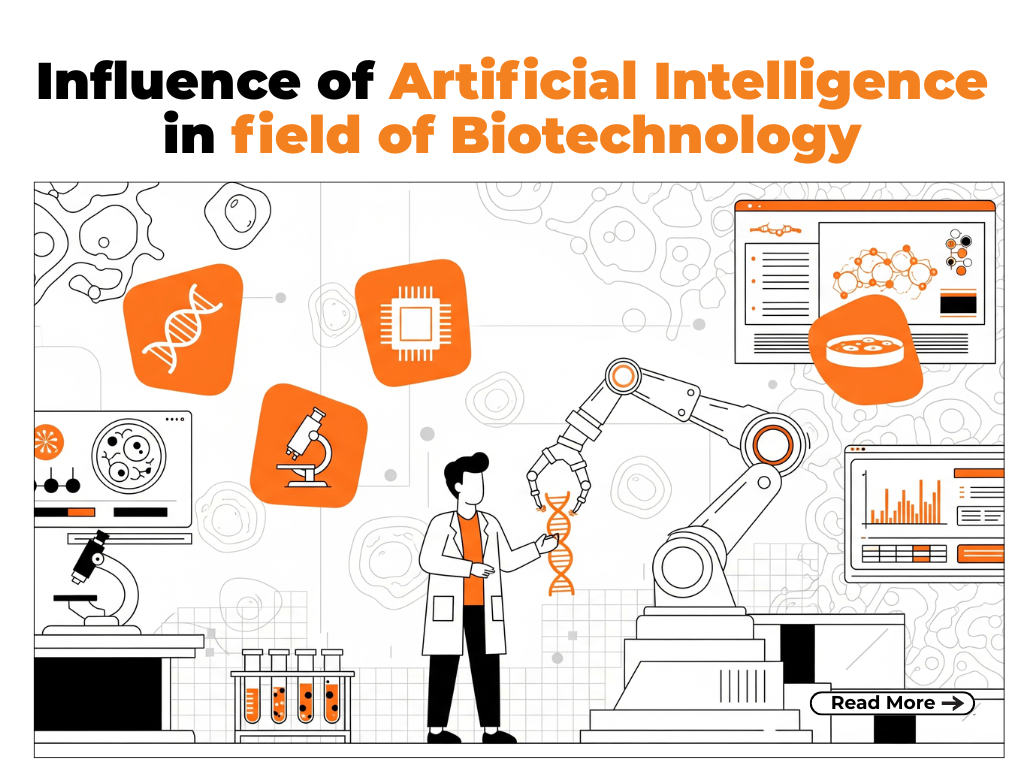- Why Choosing the Right Course Matters?
- What Is Master of Library and Information Sciences (M. Lib. I. Sc.)?
- Who Should Consider M. Lib. I. Sc.?
- Why Library and Information Sciences Matter Today?
- Top Skills You’ll Develop in M. Lib. I. Sc.
- Scope of Library and Information Sciences in Future: What’s Next?
- Internship & Research Opportunities
- Alumni Success Stories
- How to Maximize Your Career in Library and Information Sciences?
- Higher Studies and Global Certifications After M. Lib. I. Sc.
- Conclusion
- Frequently Asked Questions (FAQs)
Why Choosing the Right Course Matters?
Choosing the right postgraduate course is one of the most important career decisions after completing graduation. It not only defines your professional path but also enhances your intellectual growth and social impact. In today’s competitive academic landscape, where options range from management to technology, humanities to sciences, it’s essential to select a course that aligns with both your interests and long-term goals.
The Master of Library and Information Sciences (M. Lib. I. Sc. or MLIS) has emerged as a specialized program for students passionate about knowledge management, digital information systems, and research. Unlike conventional degrees that focus only on theoretical knowledge, MLIS blends library science, information technology, and data organization skills, preparing graduates for careers in both traditional and digital information ecosystems.
For students who love working with knowledge, organizing information, or exploring digital innovations, choosing MLIS can be a game-changer. This course offers not just a career in libraries but also opportunities in digital archives, corporate knowledge management, research institutions, and global content management systems.
In short, the importance of choosing MLIS lies in its ability to combine academic rigor with practical applications, opening doors to diverse, future-ready career opportunities.
What Is Master of Library and Information Sciences (M. Lib. I. Sc.)?
The Master of Library and Information Sciences (MLIS) is a two-year postgraduate degree (in most universities, sometimes offered as a one-year program) that provides in-depth training in library science, information management, and modern digital technologies.
Overview of MLIS Program:
- Core Focus: Collection management, digital archiving, information retrieval, data curation, and research methodology.
- Program Structure: The curriculum blends theoretical concepts like cataloguing, classification, and bibliometrics with practical tools such as database management, digital library creation, and metadata handling.
- Degree Outcome: Graduates learn to manage information resources, apply IT in library science, and create efficient systems for knowledge dissemination.
Key Highlights of M. Lib. I. Sc. Program:
- Duration: 1–2 years (varies by institution).
- Eligibility: Bachelor’s in Library Science (B.Lib.Sc. or equivalent).
- Core Subjects: Information Systems, Research Methodology, Digital Libraries, Knowledge Management, Information Retrieval Techniques.
- Career Prep: Equips students for roles as librarians, information scientists, digital archivists, and knowledge managers.
In essence, the MLIS degree explained: It’s not just about managing books in libraries; it’s about understanding the entire information lifecycle, from data creation to preservation and advanced digital dissemination.
Who Should Consider M. Lib. I. Sc.?
Not every postgraduate course suits every student, which is why eligibility and suitability for MLIS are crucial to consider. The program is designed for students who are analytical, detail-oriented, and passionate about organizing and managing knowledge.
Eligibility for MLIS:
- A Bachelor’s degree in Library Science (B.Lib.Sc. or BLISc) is the minimum requirement.
- Some universities accept graduates from other fields if they have relevant experience in libraries or information centers.
Suitable Candidates for MLIS:
You should consider pursuing MLIS if:
- You enjoy reading, research, and academic environments.
- You are curious about digital technologies, databases, and online information systems.
- You are organized and detail-oriented, with a natural ability to classify and arrange data.
- You want to work in universities, research institutes, IT companies, or global organizations where knowledge management is key.
- You are interested in teaching, training, or research in information sciences.
Tip: If you’re someone who values lifelong learning and enjoys working at the intersection of technology and information, MLIS is the right course for you.
Why Library and Information Sciences Matter Today?
In today’s knowledge-driven society, the role of library and information sciences has become more relevant than ever before. From managing vast digital archives to ensuring accessibility of research data, MLIS professionals play a central role in shaping how people interact with knowledge.
Importance of MLIS in Today’s World:
- Digital Revolution: With e-books, online journals, and digital repositories replacing traditional systems, the demand for skilled information scientists is at an all-time high.
- Research Support: Scholars and scientists rely on efficient knowledge systems for accessing accurate, peer-reviewed data.
- Corporate Growth: Multinational companies now employ knowledge managers to organize internal data, streamline workflows, and maintain digital repositories.
- Cultural Preservation: Libraries and archives safeguard heritage, manuscripts, and historical data, ensuring future generations can access them.
- Global Careers: As information exchange becomes global, MLIS graduates are finding opportunities in international universities, UN agencies, and digital content firms.
| Did You Know? The term “Digital Library” was first popularized in the 1990s, but today, almost every university and corporation maintains one creating thousands of jobs for MLIS graduates in India and abroad. |
Top Skills You’ll Develop in M. Lib. I. Sc.
One of the strongest reasons students choose MLIS is the wide range of skills it develops, combining traditional knowledge with modern digital expertise. The course goes beyond book management and creates professionals who can thrive in today’s data-driven world.
Key Competencies in MLIS Degree:
- Information Organization: Mastery of cataloguing, classification, metadata creation, and indexing.
- Digital Literacy: Skills in e-resources management, digital archiving, and database handling.
- Research & Analytical Thinking: Ability to evaluate scholarly resources, conduct bibliometric studies, and assist in academic research.
- Technology Proficiency: Training in library software (Koha, DSpace), content management systems, and online databases.
- Knowledge Management: Competence in handling corporate data, institutional repositories, and digital content curation.
- Communication & Teaching: Strong presentation, documentation, and teaching skills for academic or corporate environments.
In short, the skills gained in MLIS make graduates versatile, ready for roles in education, research, IT, and corporate knowledge management.
Scope of Library and Information Sciences in Future: What’s Next?
The future scope of MLIS Course is expanding rapidly, especially with the growing reliance on digital data. Unlike traditional views that restricted library science to academic spaces, today’s graduates enter diverse domains such as IT, government, media, healthcare, and international organizations.
Career Opportunities After MLIS:
- Academic Libraries: Work as librarians, information officers, or resource managers in schools, colleges, and universities.
- Digital Libraries: Manage e-resources, online repositories, and knowledge portals for global institutions.
- Corporate Knowledge Centers: Many IT and multinational companies now hire MLIS graduates to manage internal databases.
- Research Institutes: Support scientific research through advanced cataloguing, citation management, and digital archiving.
- Government Sector: Roles in archives, national libraries, and public policy organizations.
- International Careers: Jobs with UNESCO, UN, and World Bank as knowledge or information specialists.
MLIS Degree Prospects in the Coming Years:
- Demand for data curation experts in research-driven sectors.
- Growth in AI-powered libraries and smart archives.
- Increased opportunities in healthcare knowledge management and legal information systems.
| Did You Know? India has more than 70,000 libraries (public, academic, and special) – making it one of the largest employers for MLIS graduates. With digitization, this number is growing globally at an even faster pace. |
Internship & Research Opportunities
Practical learning is a core part of MLIS programs, giving students real-world exposure before stepping into professional careers.
Internship Opportunities for MLIS Students:
- University Libraries: Hands-on training in cataloguing, digitization, and user services.
- National Archives & Museums: Work on preservation, metadata tagging, and digitization of heritage collections.
- Corporate Sector: Internships in knowledge management and database administration in IT firms.
- Research Institutions: Opportunities to assist scholars with data retrieval, bibliometric studies, and digital resource management.
Research Opportunities in MLIS:
- Emerging Fields: Digital libraries, artificial intelligence in information retrieval, and semantic web technologies.
- Specializations: Information behavior studies, open access publishing, and data preservation.
- Academic Research: Students often publish papers, attend conferences, and collaborate with international scholars.
The internships and research projects in MLIS act as stepping stones for careers in academia, corporate sectors, and global knowledge organizations.
Alumni Success Stories
The true strength of any program lies in the achievements of its alumni. MLIS graduates worldwide have proven that this degree opens multi-dimensional career paths.
Inspiring MLIS Graduate Achievements:
- The Digital Archivist: One alumna transformed her career by joining a leading university in the USA as a Digital Content Specialist, helping preserve rare manuscripts through digitization.
- The Corporate Knowledge Manager: A graduate of MLIS is now working with a multinational IT company as a Knowledge Management Officer, ensuring smooth information flow across global offices.
- The Academic Leader: Another alum pursued research and is now an Assistant Professor in Library and Information Sciences, shaping the next generation of professionals.
| Did You Know? Some MLIS graduates have even built careers as independent consultants, helping organizations set up digital libraries, archives, and e-learning resource centers, a path that combines entrepreneurship with academic expertise. |
Career Tips for MLIS Graduates
While an MLIS degree equips you with knowledge, success depends on how strategically you apply it in the professional world.
Practical Career Tips After MLIS:
- Build Technical Skills: Learn library automation software (Koha, DSpace, Greenstone) and data management tools.
- Stay Updated: Follow trends in digital libraries, AI in knowledge management, and open access publishing.
- Network with Professionals: Attend library conferences, webinars, and academic meet-ups.
- Work on Soft Skills: Communication, teaching, and presentation are vital in academic and corporate roles.
- Develop Research Expertise: Engage in publishing papers and collaborating with faculty for long-term career growth.
- Be Industry Flexible: Explore jobs beyond libraries – corporate, healthcare, legal, and IT sectors all hire MLIS graduates.
These MLIS graduate career tips ensure employability in both traditional and emerging sectors.
Higher Studies After MLIS
Many students choose to pursue advanced studies after MLIS to deepen their expertise, gain research exposure, and open up more specialized career paths. Higher studies not only strengthen academic knowledge but also help graduates stand out in competitive fields like teaching, corporate knowledge management, and international research.
Popular Higher Study Options After MLIS:
- M.Phil. in Library and Information Science:
This program is ideal for students who want to take their research and academic learning to the next level. It focuses on advanced areas like information retrieval, bibliometrics, knowledge organization, and digital preservation. An M.Phil. helps students sharpen their analytical and teaching skills, making them strong candidates for lecturer positions and research fellowships. - Ph.D. in Library and Information Science:
Pursuing a Ph.D. is the highest academic achievement in this field. It allows graduates to explore specialized research topics such as artificial intelligence in libraries, big data curation, digital archives, or user behavior studies. A Ph.D. also opens prestigious roles in universities as professors, senior researchers, and policy advisors in government and international organizations. - PG Diplomas/Certifications:
For those who want short-term specialization, postgraduate diplomas and certifications in areas like archival management, digital resource curation, information technology, or knowledge management are valuable. These certifications boost employability in corporate knowledge centers, publishing houses, and e-learning industries, where niche expertise is often preferred. - Interdisciplinary Studies:
Many MLIS graduates expand their horizons by exploring interdisciplinary programs such as data science, records management, education technology, or information systems. This combination of library science with modern digital tools prepares them for careers in corporate IT, healthcare knowledge systems, and international data-driven organizations.
Conclusion
The Master of Library and Information Sciences (M. Lib. I. Sc.) is far more than just a degree about managing books; it is a dynamic gateway into the world of knowledge management, digital curation, research, and information technology. This program equips students with a unique blend of traditional library science skills and modern digital expertise, making them highly relevant in today’s fast-changing information era.
With strong foundations in digital archiving, cataloguing, metadata creation, and database management, MLIS graduates find opportunities not only in educational institutions and research organizations but also in corporate firms, IT companies, government bodies, and international organizations. The growing dependence on digital knowledge systems has created a steady demand for professionals who can manage, preserve, and analyze information effectively.
The real strength of MLIS lies in its adaptability. The field has evolved from traditional library setups to advanced applications like AI-powered smart archives, corporate knowledge ecosystems, and digital learning platforms. This transformation ensures that MLIS graduates are not restricted to a single path but can explore multiple roles across diverse industries.
Whether you choose to work in academics as a librarian or researcher, in corporate spaces as a knowledge manager, or pursue an independent career in consulting and digital library development, the scope of MLIS offers a sustainable, future-ready, and globally relevant career path.
In today’s information-driven world, MLIS professionals act as true knowledge navigators, shaping how information is created, preserved, accessed, and applied for the advancement of society.
Frequently Asked Questions (FAQs)
Q1. What is the full form of MLIS?
MLIS stands for Master of Library and Information Sciences.
Q2. What are the eligibility criteria for MLIS?
Typically, students must have a B.Lib.I.Sc. (Bachelor in Library & Information Sciences) or equivalent degree with at least 50–55% marks (varies by university).
Q3. Is MLIS a good career option?
Yes. With opportunities in academic institutions, corporate firms, IT companies, and global organizations, MLIS is a career with growing demand.
Q4. Can I get international jobs after MLIS?
Absolutely. MLIS graduates work with UNESCO, UN, World Bank, and various global universities as librarians, archivists, and knowledge managers.
Q5. What is the average salary after MLIS in India?
Freshers earn ₹3–5 LPA, while experienced professionals and international placements can offer ₹8–15 LPA or higher.
Q6. Can I pursue Ph.D. after MLIS?
Yes, pursuing a Ph.D. in Library and Information Sciences is a common path for those interested in teaching, research, and academic leadership.




![Career Paths After B.Sc. Information Technology [Lateral Entry] Career Paths after B.Sc. Information Technology [Lateral Entry]](https://www.lpu.in/blog/wp-content/uploads/2026/01/Career-Paths-after-B.Sc_.-Information-Technology-Lateral-Entry-218x150.png)









